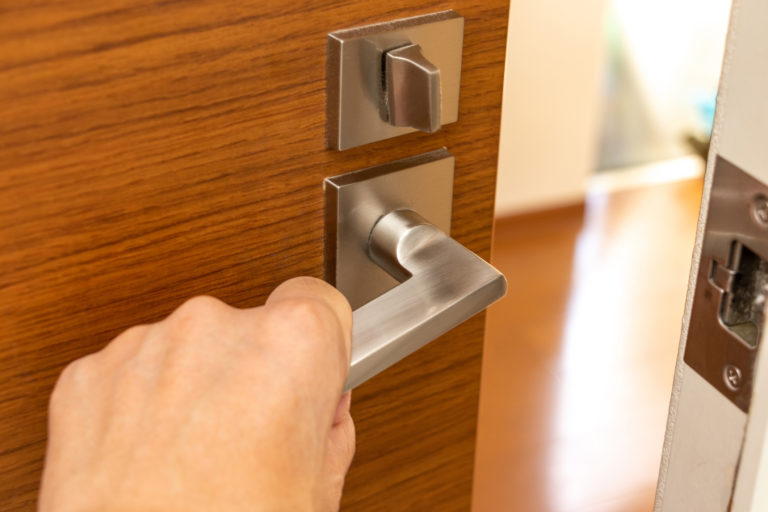Locks are the first barrier that protects your home, office, or vehicle from unauthorized access. They are key in securing your belongings, ensuring the safety of your loved ones, and maintaining privacy. However, the lock is only as secure as the person using it. To make sure your locks are offering maximum protection, it’s important to follow lock safety tips that everyone should know. Here are some essential tips to help you keep your property secure.
Pick High-Quality Locks for Better Protection
Lock safety begins with choosing high-quality locks. Using low-quality or inexpensive locks can significantly increase the risk of a break-in. Opt for high-security locks that are designed to withstand tampering, picking, and drilling. Certified locks, especially those with a Grade 1 rating by the American National Standards Institute (ANSI), offer the highest level of protection for both residential and commercial properties.
Boost Door Security with Improved Deadbolts
Deadbolts are one of the most secure lock options, and upgrading to high-quality deadbolts can provide a significant boost to your home’s security. Make sure the deadbolt features a one-inch throw, which helps strengthen the lock by extending the bolt further into the door frame. A deadbolt keyed on both sides offers additional protection, and a double-cylinder deadbolt, which requires a key to unlock both the inside and outside, is a great option for preventing intruders from entering through nearby glass windows.
Smart Locks: The Future of Home Security
Thanks to advancements in technology, smart locks have become an increasingly popular option for both residential and commercial use. They offer the convenience of keyless entry, allowing you to unlock your door with a smartphone, keypad, or biometric recognition, such as fingerprints. Many smart locks also allow you to monitor who enters and exits your property and can send alerts if the door is left unlocked. To prevent security issues, always select a reputable brand with strong encryption to safeguard against hacking.
Ensure Your Home is Secure by Locking Doors and Windows
While it may sound obvious, one of the simplest ways to prevent break-ins is to ensure all doors and windows are locked. Many people forget to secure their home, especially when they are at home or stepping out for just a few minutes. Whether you’re enjoying time in the backyard or running errands, always make sure your doors and windows are locked. And even if you feel safe in your neighborhood, it’s wise to lock everything up before going to sleep.
Avoid Hiding Keys Outdoors for Better Security
Hiding a spare key outside is a common practice, but it can leave your home vulnerable to break-ins. Burglars are aware of typical hiding spots like under the doormat, in a flower pot, or inside a fake rock. Instead of hiding a key, consider leaving one with a trusted neighbor or using a key lockbox accessible only to those you trust. If you have to hide a key outside, choose an inconspicuous location and consider using a high-security lockbox or a biometric safe for added protection.
Get Your Locks Rekeyed After Moving In for Peace of Mind
When settling into a new home or business space, rekeying your locks is a smart move. The previous occupants may have passed along keys to friends, relatives, or maintenance personnel, and you can’t be certain who still has access. Rekeying is an affordable and effective method to ensure you’re the sole key holder. The process involves changing the internal workings of the lock, making old keys useless, and providing you with new keys.
Invest in a Lock Box for Key Security
Instead of hiding spare keys in typical outdoor spots, consider using a lock box near your front door for secure storage. A lock box is a small metal container with a combination or key access designed to safely store spare keys. This guarantees that only trusted individuals can access your keys. Lock boxes are especially practical if you rent out your home or have frequent visitors.
Ensure Your Locks are Functional by Checking Them Often
Lock maintenance is an essential step in keeping them in good working order. Weather, wear, and tear can cause locks to become rusty, stiff, or less reliable over time. Be sure to check your locks regularly for signs of damage or malfunction. To ensure smooth operation, apply graphite powder or a lock-specific lubricant. If you notice any issues such as a lock that’s hard to turn or a sticking key, don’t wait—repair or replace the lock as soon as possible.
Avoid Giving Out Keys to Protect Your Property
While it may seem convenient to share keys, it can put your security at risk. You can’t always be sure how many copies your trusted individuals have made or who else may have access to the key. Limit distribution to those you trust, and if you need to allow multiple people access, consider using smart locks or temporary codes. If you provide a key to a service worker, always make sure to retrieve it afterward and never leave it unattended.
Use Reinforced Door Frames and Security Bars for Extra Protection
For extra protection, installing security bars on sliding doors and windows can prevent break-ins, as they are often vulnerable. Reinforcing door frames also offers additional strength, making it much harder for intruders to kick in doors. Since burglars often focus on areas where locks are easy to bypass, taking steps to secure these points can greatly minimize the risk of a break-in.
Know Who’s at Your Door by Installing a Peephole or Door Viewer
A smart lock safety tip is to install peepholes or door viewers on your entry doors, particularly the front door. This feature allows you to safely check who’s outside before opening your door, which is essential for avoiding unwanted visitors or potential threats. Many modern digital door viewers come with video capabilities and can alert you when someone is at the door, offering added peace of mind, especially when you’re home alone.
Be Mindful of How You Dispose of Old Keys
If you have old keys you no longer need, they can present a security risk if someone finds them. Don’t just throw them away—either cut them up or take them to a locksmith for proper disposal. Never leave old keys in places where they could be discovered and used to gain unauthorized access to your home or business.
Locks are crucial for securing your home or business, but their effectiveness hinges on proper maintenance and usage. By following these lock safety tips, you can greatly reduce the risk of a break-in or unauthorized access. Make sure to invest in durable, high-quality locks, maintain them regularly, and stay vigilant in ensuring all entry points are securely locked. Effective lock safety is an easy but powerful way to ensure your home or business remains safe from unwanted intruders.

